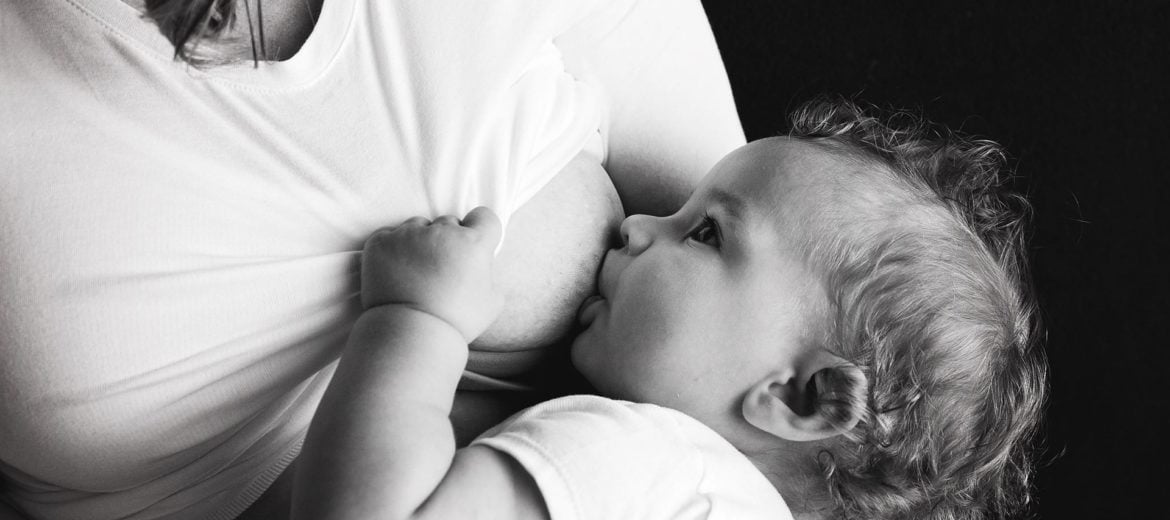“Nursing mothers especially, first-time mothers, usually have many concerns regarding baby feeding, which is why we encourage them to attend our Infancy Care Class” says Nupur Sah, Certified Lactation Counselor and Child Health Educator at Sitaram Bhartia.
Listed below are few queries often asked in our Infancy Care class, and information that may help put you at ease.
“My breast milk isn’t enough for my baby”
Just a few days after delivery, Richa Thukral was extremely worried that her milk was inadequate to cater to the needs of her baby because the baby was demanding feeds frequently.
“After delivery, your body will produce colostrum which is the first milk. This is released as tiny secretions which supplies enough calories, antibodies and nutrients to the baby but doesn’t completely fill them up” explains Nupur.
In a way, colostrum takes care of the nutritional needs of the baby but not the “greed” of the baby for a full stomach.
“Since it is released as tiny secretions, the baby “demands” for more feeds which provides more opportunities for you and your baby to practice breastfeeding”
As time passes and your baby gets better at breastfeeding, there is a transition in breast milk too. Since the baby is better at suckling and extracting milk now, colostrum is replaced with “transitional milk” (a combination of colostrum and breastmilk) followed by regular breastmilk.
“Don’t worry! Your breast milk is biologically designed to cater to every need of your child and is enough to satisfy their hunger, thirst and growth needs.”
Richa had one more question, “How many times a day does a baby breastfeed?”
“You should breastfeed based “on demand” of the baby i.e. whenever the baby demonstrates hunger cues. This can vary from baby to baby but it often happens between every 1 – 3 hours”
These doubts may creep back in when the baby starts losing weight after a week of birth but remember, the baby is just shedding the excess water acquired in the womb.
“After one or two months, you would have understood a pattern and you’ll probably nurse 9-10 times in a day. As your baby gets older, you may develop a more reliable schedule.”
“One breast produces more milk for baby’s feeding than the other”
Swati Malik, another first-time mom, was afraid that one breast produces more breast milk than the other.
“Both breasts produce an equal quantity of milk. Since every human being has a dominant hand, the new mother tends to nurse the baby on the side more convenient for her” reassures Nupur.
“Over time the body reads this as a sign of increased demand and therefore, increases supply of milk to that particular breast.”
New mothers must strive to feed the baby on both the breasts equally.
Read: 5 Questions Every Mother Asks About Breastfeeding
“One top-feed few months at night ensures peaceful sleep”
Alisha Gujral was planning to start a top-feed at night to ensure a well-fed baby and peaceful sleep.
Alisha asks, “Can I give my newborn a bottle and breastfeed?’
“Even if it’s just 1 bottle feed a day, it’ll create nipple confusion for your baby,” cautions Nupur.
“Apart from that, this convenience feed overfills the baby against his/her demand. The baby oversleeps and misses subsequent breastfeeds”
“Over time, these missed breastfeeds are read as a signal of decreased demand by the mother’s body and eventually results in decreased production”
“If that happens, breastfeeding could get compromised and consequently your baby won’t receive the full potential and advantages of breastfeeding.”
Upon hearing this, Alisha decided to continue to breastfeed her baby at night.
“If I have twins, I can’t breastfeed them”
Palak Mishra was apprehensive about feeding her twins, especially in situations when both babies were hungry at the same time.
“It can be challenging to breastfeed twins at the same time,” agrees Nupur.
“But it isn’t impossible. There have been many success stories where the mother has breastfed her twins”
Even if the mother has twins, she will always have the capacity and ability to sustain milk production for her babies.
Palak was guided on how to position the babies in a football hold or a cross and felt assured of the continuous support she’d receive from our lactation team.
“I haven’t had food so I won’t have enough milk to breastfeed my baby”
Sejal Patel wanted to know whether she would have enough milk for her baby even if she hadn’t eaten anything herself.
“The mother’s body has been preparing for the last nine months. It has been wired in a way to have enough reserves that it will still produce milk to sustain the baby’s feeding” says Nupur.
“So even if the mother hasn’t had anything to eat for some time, she will still be able to breastfeed her baby without the quality of the breast milk being compromised”
Conclusion
Nupur concludes, “Mother’s breast milk is full of nutrients, antibodies and calories and is sufficient for the baby in itself.”
“It is also the most dynamic body fluid which changes as per your baby’s age, weight and even adapts to the season and weather conditions. Therefore every mother’s milk is biologically designed to satisfy her own baby’s hunger and growth needs.”


